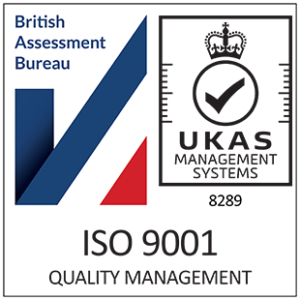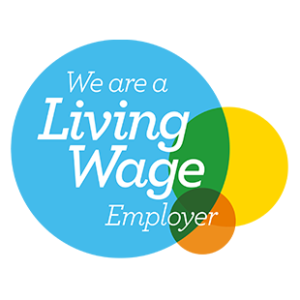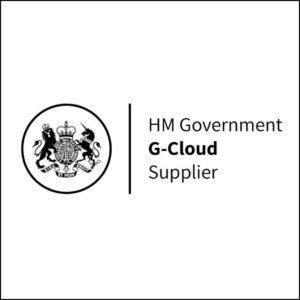May 2025
As featured in the May edition of WorkLife Business News.
Written by: Catherine Negus, Senior Research Officer, Mental Health Foundation, with quotations from colleague interviews.
“[The reduced week] helps me to flourish in work and at home… It shows staff members that we’re trusted… that our wellbeing is valuable.”
Mental Health Foundation (MHF) is a UK-wide charity focused on the prevention of poor mental health, and promotion of good mental health. We’re an organisation of around a hundred staff with a complex range of roles, from research and policy to delivering frontline programmes, public health messaging, and events.
In April 2024, MHF joined the growing number of organisations trialling a reduced working week. Taking on this challenge at a time of much other change reflects our values (including being ‘determined pioneers’ and ‘walking our talk’), and our role in testing initiatives to support good mental health for the broader population.
During the one-year pilot, full-time hours dropped from 35 to 32, and part-time hours proportionately. Crucially, there was no reduction in pay. Most staff had freedom over how to structure their new week, and many say this choice is key to the pilot’s benefits. However, this requires careful planning to ensure essential cover is available. Most people have experienced a genuine reduction in hours.
MHF is unusual in being able to run a year-long pilot which enables us to account for natural fluctuations occurring throughout the year, and allows change to bed in. We’re now analysing HR data and our all-staff survey. Meanwhile, interesting themes are emerging from in-depth colleague interviews.
Wellbeing
The extra time at home is being used for many activities MHF encourages as promoting good mental health – most prominently, movement.
“It’s a combination of having that freedom, [and] being able to embed the healthier lifestyle elements that I sometimes am too busy to focus on… so that stuff slips and slides. Now, I’ve got that space to be able to concentrate on those things a bit more.”
Many people use some time off for essential ‘life admin’ tasks which might not be that fulfilling in their own right. This can reduce a thrum of background anxiety and helps people enjoy meaningful activities like socialising.
“Weekends… now they’re just easier. You’re more able to engage in family life without having to see it as a list of tasks to be crossed off.”
People talk about a change in the way they do things – they are more present and mindful, whether enjoying a quality conversation with their child, or becoming less frustrated by a queue in the post office.
The most-discussed effects on people’s wellbeing are reduced stress and increased feelings of calm. ‘Flexibility and ‘space’ help people feel more in control of life. We hear mentions of better mood, more energy, improved fitness, and healthier eating.
“From my perspective, trying to work full time whilst having a physical disability is always something that has been a challenge. I feel a lot more confident in my ability to work full time.”
Having more time can support deeper components of long-term wellbeing, such as a sense of achievement or integrity when we pursue growth and look after those we love. Wellbeing requires not just work-life balance, but a balance of time for work, for others, and for oneself; time for necessities, and for fulfilment. This can be particularly important for parents, carers, and those living without other adults.
While people recognise that three extra hours do not enable them to do everything, some say the time has gone further than expected. They maximise benefits by, for example, exercising with their partner, or switching to an active commute.
The large majority of interviewees report that the pilot has not increased workplace stress, or has even reduced it, due to improved efficiency and more recovery time. For a few people there is increased pressure due to the pilot’s interaction with other difficulties (a ‘pressure cooker’ effect), and challenges in adjusting internal collaboration to the reduced week.
However, everyone interviewed agrees that the reduced week has an overall positive impact on their wellbeing – and this effect is strongest for those who have fully implemented the change.
Productivity and performance
The majority of people feel that the pilot has not generally affected outputs, or has had a positive impact. It remains important for leaders to be clear about expectations.
We have not yet found reason for concern around our work with external partners, problem solving, or response to time-sensitive issues. However, there are sometimes hurdles around internal collaboration, which are receiving ongoing attention. ‘Contact time’ can become compressed in highly collaborative, part-time teams. It is crucial that people can always access managers’ support to prioritise their time use and handle pressing difficulties.
People give a convincing range of explanations for perceived productivity – including better focus, prioritisation, recovery and perspective.
“Coming into work… more rested, having properly switched off… I would say that the quality of my work is definitely much better, as well as the outputs.”
“Having an extra day [away] of reflection, sometimes the pieces just settle… Having time to step back and mull things over without frantically firing off emails and so on is really positive.”
Several people emphasise that it is important for their team to adjust their hours flexibly to cover absences or external meetings. Other enablers include an emphasis on shorter, purposeful meetings, improvements to systems and processes, and hybrid working.
Team stability, staff skills and strategic direction are seen as crucial to organisational success. There is good evidence that the pilot is bolstering recruitment and retention, and interacts positively with the process of strategic prioritisation.
Next steps
We will publish our evaluation report this summer. Our Board has much to consider, but the reduced working week is unsurprisingly popular –100% of respondents to our staff survey hope it will continue! Our workforce are highly motivated by the charity’s mission, and clearly experience a synergy between their achievements within the charity, and their overall wellbeing.









